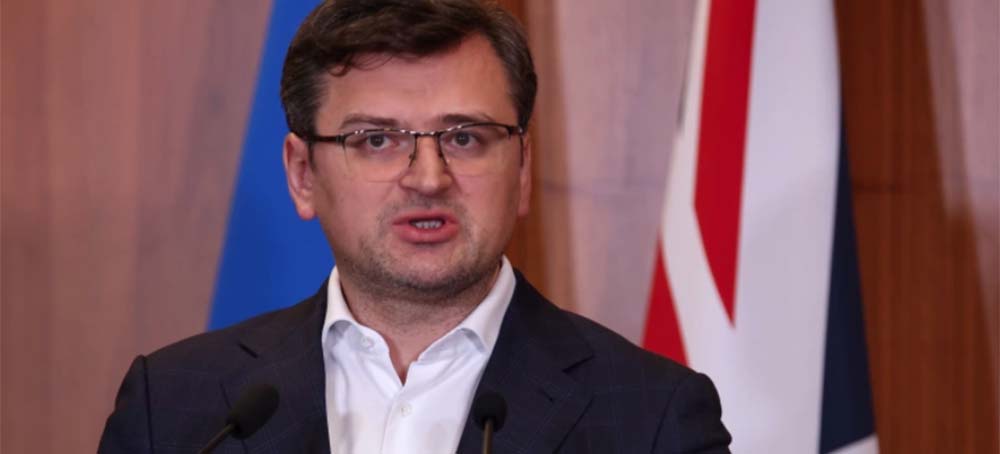
30 October 22
Live on the homepage now!
Reader Supported News
OCTOBER HAS BEEN A NIGHTMARE FOR DONATIONS — Some of our donors are doing the the best that they can but overall we are down 30% from one month ago. For RSN that’s a huge chunk of our already very limited budget. At this point we are just trying to limit loses and keep it as close as possible. Take a moment to chip-in and sustain this organization you come to. That way it will be here when you come back.
Marc Ash • Founder, Reader Supported News
Sure, I'll make a donation!

FOCUS: Vincent Bevins | Brazil's Democracy Is on the Brink and the Ballot
Vincent Bevins, New York Magazine
Bevins writes: "Former president Luiz Inácio 'Lula' da Silva, on the verge of possible reelection in Brazil, has brought together a surprisingly broad coalition of contradictory forces united in a desperate attempt to preserve Brazilian democracy, fight extreme poverty, and establish basic protections for the Amazon rain forest."
ALSO SEE: Brazil's Presidential Election May Determine
the Fate of the Amazon Rainforest
— and the Entire Planet's Climate
Brazil’s Democracy Is on the Brink and the Ballot
Bolsonaro’s campaign has struggled, but he has laid the groundwork to reject defeat.
Former president Luiz Inácio “Lula” da Silva, on the verge of possible reelection in Brazil, has brought together a surprisingly broad coalition of contradictory forces united in a desperate attempt to preserve Brazilian democracy, fight extreme poverty, and establish basic protections for the Amazon rain forest. This Sunday, they hope to defeat the country’s extreme-right president, Jair Bolsonaro, in power since 2018, who trailed the Workers’ Party candidate by five points in the first round of voting on October 2. Bolsonaro has tried to close the gap since then even as he reverts to constant attacks on the electoral system in a campaign marked by frenetic violence, floods of fake news online, and fear of an outright coup.
With so much at stake, rivals have become allies. “When democracy is visibly at risk, what matters is not the particular program of any given candidate or which party you usually support,” insisted Marina Silva, the environmentalist who ran for president against the Partido dos Trabalhadores in 2014. She was speaking on Sunday alongside Geraldo Alckmin, the establishment politician who ran against Lula in 2006 — but is now his running mate — and Tabata Amaral, a popular young congresswoman with few fans on the left. The audience was predominantly white, wealthy Brazilians in the heart of São Paulo’s financial district — the kind of people that, as a class, mostly cheered along as the left-leaning PT was crushed by the 2016 impeachment of former president Dilma Rousseff and then again as Lula, the party’s co-founder, was imprisoned ahead of Bolsonaro’s election victory in 2018. Things are different now. “Businesspeople know that institutional stability and democratic politics are essential,” Silva continued. “If you want to preserve your liberty, the best way is democracy.” She received a standing ovation.
The PT’s base of support is still Brazil’s poorer non-white majority. But the problem, for the party and the rest of Brazil’s pro-democracy forces, is that a lot of regular people chose to vote for Bolsonaro and his allies earlier this month. Even if Lula sails to victory in Sunday’s runoff election, there will be a ferocious Bolsonarista bloc in Congress and in control of many state governments. If Bolsonaro wins — after billions in slush-fund spending throughout Brazil and battles with the country’s election officials — he could have his way with the country’s institutions.
“The risks to Brazilian democracy are very serious, for reasons which are both true in general and specific to our case,” explained Flávia Biroli, a political scientist at the University of Brasília. “First, we know that autocratic leaders given more than one mandate tend to destroy institutions from the inside. And here specifically, after first-round voting, we can already see that radical Bolsonarismo is here to stay.”
At its heart, Bolsonarismo is a violently anti-democratic force. The president is a former army captain who made his career praising the U.S.-backed military dictatorship that ended in the 1980s and famously said as a congressman that the regime did not kill enough people, that violence, not voting, was the only path to change, that it would be “fine” if tens of thousands of innocent people died in the process, and that the president should be executed.
In 2018, Lula was ahead in the polls until he was imprisoned by a judge, who soon after joined Bolsonaro’s government, on charges that Brazil’s Supreme Court later overturned.
As president, Bolsonaro has governed erratically and aggressively. During the pandemic, deaths soared as the economy shrank, and millions of children now find themselves without enough to eat. The chaos he unleashed led some of the country’s institutional elites to back away from him. But his movement also connected with diverse sectors of the population while in power. Bolsonarismo’s most loyal base, by far, is white men in the comfortable middle class, but he has also won support among Evangelical Christians; the country’s cowboy-settler class; the military, police, and their supporters; and, to a large extent, Brazil’s growing community of YouTubers, TikTok stars, and Instagram influencers.
“Bolsonaro did some good things for the country, but in reality, the Supreme Court wouldn’t let him govern,” Kleber Borges, a 44-year-old security guard, told me. Borges commutes 90 minutes twice a day between his job in São Paulo and his home in a poor suburb and says he will vote to reelect the president on Sunday. “What I am afraid of is the left letting crime get even worse and him siphoning off money and helping countries like Venezuela and Cuba.”
“Hold on,” he said, pulling out his phone. “Let me show you some videos of what Lula really plans to do.”
Jair Bolsonaro is often compared to Donald Trump, and not only because the Bolsonaros have actively cultivated the association. Though Bolsonaro comes from a much more coherent ideological tradition, his family has seemingly tried to import U.S. culture wars with varying levels of success. During the pandemic, Bolsonaro embraced anti-vaccine rhetoric — though a great many Brazilians got vaccinated anyway. This year, during an interview with Tucker Carlson, Bolsonaro sat stone-faced as the Fox News host called his opposition in Brazil a “coalition of billionaires, college professors, and CNN” — though elites had lined up behind Bolsonaro in 2018. And while trailing far behind in the polls over the past year, Bolsonaro has attacked the Brazilian voting system — though no one can point to any real problems with it. It has also become a common fear here in Brazil that Bolsonaro’s supporters will mount their own version of what happened in the U.S. on January 6, 2021, some kind of militant rejection of his possible loss that, in the South American context, could mean serious chaos or precede a concerted attempt to seize power.
Bolsonaro has always made it clear he would crush democracy if he had the means to do so. One reason many analysts suspect Lula has assembled such a broad political coalition is that he wants to bulletproof the democratic transition of power against a coup attempt. After the first round of voting, all of the other major candidates, along with the founder of the country’s right-libertarian NOVO party, lined up behind him.
The (North) Americanization of Brazilian politics has proceeded along other axes this year. To a novel extent, the campaign has been dominated by celebrity endorsements, media meta-discourse, and last-minute mudslinging on religious terrain. On the first front, the pro-Lula camp has managed to assemble pop stars like Anitta and Pablo Vittar, rapper Emicida, and foreign dignitaries like the Portuguese prime minister — and Sonic Youth. Bolsonarismo meanwhile counts on Gusttavo Lima and much of the rest of the country’s growing country-music scene as well as crypto-shilling soccer superstar Neymar. (Last week, during an appearance on Brazil’s Joe Rogan–esque Flow podcast, Lula implied that Bolsonaro had forgiven some of Neymar’s massive tax debt.)
The Bolsonaro family has also long insisted on arming the entire Brazilian population, USA-style. Last Sunday, voters got a shocking demonstration of what that looks like. Roberto Jefferson, a former congressman and longtime Bolsonaro family friend, unleashed his arsenal on police officers who had come to bring him in after he broke the terms of his house arrest by posting online messages attacking a Supreme Court justice. Two officers were injured during the standoff after Jefferson opened fire and threw a hand grenade at them.
Another violent scandal broke out on Thursday in Brazil’s most populous state. According to witnesses, plainclothes police officers working for gubernatorial candidate and Bolsonaro ally Tarcísio de Oliveira killed a man in a São Paulo favela. Then, a campaign staffer ordered a journalist to delete the evidence, and the candidate then tried to claim he had been attacked. The Bolsonaro family has been linked to paramilitary police mílicias, and right-wing fake-news campaigns have this month tried to associate Lula with organized crime. “I have covered a lot of campaigns,” said the cameraman who was told to erase his footage. “But I have never seen a candidate for governor working with people like that.”
During Lula’s two terms as president from 2003 to 2010, he oversaw an economic boom and the expansion of social services. Almost everybody in Brazil became better off in those years, and after tens of millions of people rose out of poverty, he left office with an approval rating of over 80 percent. This was the period when a so-called “pink tide” of left-leaning governments, buoyed by Chinese demand for their nations’ commodities, made advances across Latin America. Nothing symbolized the tide’s recession more than the waves of crises that hit Brazil — political, economic, and judicial — in the 2010s, threatening at one point to wash away the Workers’ Party once and for all. Now, with a new crop of left-leaning leaders in power in countries like Chile, Colombia, and Argentina, supporters see Lula’s return as both an attempt to finally stop the bleeding in Latin America’s largest country and a cathartic victory over the right-wing forces that used courts and chicanery to crush a popular movement.
As Bolsonaro’s campaign has continued to struggle, he has been laying the groundwork for a post-defeat narrative that his movement was stabbed in the back and the election stolen. He and his allies are already claiming that the vote-counting system is flawed, that over-stretched and hyperactive electoral authorities have engaged in censorship, and/or that his message is being suppressed on radio stations. Meanwhile, tens of millions of overstressed Brazilians watch the news anxiously, praying for a peaceful democratic transition over the next several weeks.
READ MORE
 Ukrainian Foreign Minister Dmytro Kuleba speaks during a news conference. (photo: Kuba Stezycki/Reuters)
Ukrainian Foreign Minister Dmytro Kuleba speaks during a news conference. (photo: Kuba Stezycki/Reuters)
Ukraine Promises to Export More Grains to African Countries
Al Jazeera
Excerpt: "Ukraine's Foreign Minister Dmytro Kuleba has promised that his country will do all it can to send more grain to Africa as he began his African tour this week in Senegal."
“We will do our best until the last breath to continue exporting Ukrainian grain to Africa and the world for food security,” Kuleba said at a joint press briefing with his Senegalese counterpart, Aissata Tall Sall.
Senegal’s President Macky Sall, the current chairman of the African Union, has urged Russia and Ukraine to resume their grain exports despite the ongoing war.
Many African countries depend heavily on grain imports from Russia and Ukraine. Amid market shortages, Russia has sought to portray the West as the villain, blaming it for rising food prices.
Western leaders, meanwhile, have accused the Kremlin of cynically using food as a weapon and waging an imperial-style war of conquest.
So far, Africa has stayed somewhat neutral on Ukraine: some 25 African countries either voted to abstain or did not vote at all on the United Nations resolution that condemned the war in Ukraine earlier this year. Senegal was among those abstaining and its president told the UN General Assembly last month that Africa “does not want to be the breeding ground of a new Cold War”.
Despite these positions of neutrality, Ukraine’s foreign minister said he wants to deepen his country’s ties to Africa.
“I do not come to Africa against anyone,” Kuleba said Monday. “We must strengthen our cooperation. Our future depends on the relationships we build and what happens every day.”
The Ukrainian minister criticised Russia’s statements.
“The Senegalese may be surprised if they listen to Russian propaganda. Russia wanted to make believe that [the war is because] Ukraine wants to be a member of NATO. Finland wants to be a member. And yet Russia did not attack it,” he said.
“Russia also believes that we are one people. This is not true,” Kuleba said. “The language we speak is not the same. We have a different culture and a different people. If someone tries to impose a doctrine on you, you would reject it.”
READ MORE
Contribute to RSN
Follow us on facebook and twitter!
Update My Monthly Donation
PO Box 2043 / Citrus Heights, CA 95611







